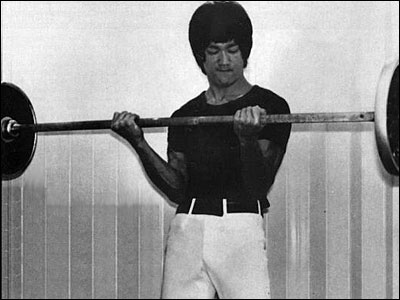
The Six Practices of Being an Athlete
See to it that you temper yourself with one thousand days of practice, and refine yourself with ten thousand days of training.
– Miyamoto Musashi
Your sport or art should obviously be the primary component of these six practices. The key here is to understand that your athletic practice is the most important aspect of all your training. If you are interested in being a legitimate athlete then focus is genuinely required.
To quote coach extraordinaire, Dan John, “The goal is to keep the goal, the goal.”
If you have an element of your training or lifestyle that is interfering with your ability to train or perform your sport or art you have to decide what your focus is going to be.
You should be training or performing in your athletic practice 4 to 6 days a week.
Strength and Power Practice
The poor implementation of a strength and power practice is by far the largest and most common impediment in an athletes development.
Too many people consider the barbell a test of mettle rather than as a tool of training.
The goal of this practice is to become strong and powerful for the kind of athlete that you are and not in some kind of general or absolute sense. This means that roller derby skaters need to be strong compared to other skaters but not necessarily when compared to powerlifters or gymnasts.
The bottom line is that what you do in this practice should support – not hamper – what you do on the mat, field, track or ring.
Ideally your strength and power practice should be overseen by a knowledgeable and experienced strength coach. If a personal coach is not an option for you I recommend researching Jim Wendler’s 5/3/1 program or Pavel Tsatsouline’s Power to the People program.
You should be implementing your strength and power practice 2 to 5 days a week.
Nutrition Practice
People often act like proper nutrition is some kind of complicated black magic or quantum level science but unless you have a severe or rare metabolic disease nutrition can be boiled down to two simple rules.
1. Eat like a fucking adult.
2. Don’t kid yourself.
If you can do this you are already out performing 90% of the population.
Eat like a fucking adult.
Eat food.
Eat real food.
Real food doesn’t come out of a can, or a box or a bag. Real food goes off.
No one over the age of 12 really thinks that nutri grain is ironman food or that diet coke is a healthy choice.
Eat vegetables for health.
Eat meat for strength.
Eat carbs for recovery.
Don’t kid yourself.
You know that pizza and beer aren’t getting you closer to your goals.
And the problem is not that you should *never* consume pizza and beer. The problem is that you pretend that because you ordered a gluten free base and low carb beer that you are somehow still eating well when what you actually did was fuck up a perfectly good meal.
Movement Practice
Repeated movement patterns take a toll and the more specific and intense your athletic practice the more specific and intense stress is placed upon your body.
If longevity in your sport and maintaining a pain free day to day life are among your goals (and they should be) then these issues should be addressed by maintaining a movement practice as a part of your schedule.
Stretch what is too tight, open what is too closed and stabilise what is too loose. This can be as simple as going through a mobility routine – like DeFranco’s Agile 8 – three or four times a week or beginning a full blown yoga practice.
Meditation Practice
A meditation practice is an incredibly powerful tool for improving all areas of your life especially your athletic performance.
We’ve all had those experiences of getting into the “zone” or hitting our “flow”. Matches or performances where time seems to slow down and our ability to think, move and react seems limitless. We recognise the advantage of this state but hardly anyone actually trains to deliberately enter into it.
As athletes we are obsessed with training our bodies but so few of us put the effort in to train our minds.
The “zone” is really nothing more than consistent mindfulness. The ability to remain in and focus on the present moment without distraction.

Regular meditative practices cause actual structural changes in the brain. Just ten minutes a day can improve your will power and decision making capabilities; increase your focus and decrease your stress.
Ten minutes a day, everyday.
Developing a meditation practice doesn’t necessarily mean that you’ll end up sitting in the lotus position, wearing flowers and talking in the breathy, hushed tones of someone who just finished a three day yoga instructor course.
To get started try the Headspace app, google ‘daily journaling’ or click here.
Lifestyle Practice
Your lifestyle practice is primarily about making sure you stay physically, mentally and emotionally healthy. By necessity training environments tend to be fairly insular and it’s easy to fall into the pattern of eat, sleep, train, repeat. While this makes for some neat tee shirts the reality is that it’s an expressway to injury and burnout.
The specifics of a happy and healthy lifestyle are unique to each person but there are few general principles that will always apply.
Get enough good quality sleep.
Have interests outside your athletic practice.
Spend time with people.
Spend time by yourself.
Spend time simply playing.


